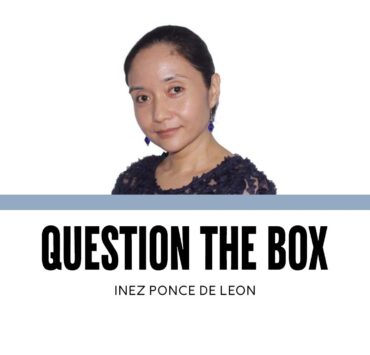Growing into my name

I was my own first enemy, recoiling at the sound of my name: “Meingel.”
I didn’t hate my name at first—maybe I was too young to notice the difficulty associated with it. That changed on my first day of kindergarten. A lacy nametag hung around my neck as my teacher fumbled through roll call. “Ming-gle? Miggle?” she said, her brow furrowed, eyes fixed on me.
At 6, I didn’t know what embarrassment was, but the sting of my classmates’ laughter, mimicking the mangled “Meingel,” taught me fast. I wanted to disappear, to flee my first class, but instead, I sat quietly, tears welling, whispering how my name should sound. It felt like a curse, too strange, too hard to say, too different from the Marias and Christines around me.
As a kid, I was called “Gel,” snipped from Meingel. I thought nicknames were universal, until my playmates Nicole and Jenny were perfectly called by their first names, while mine cut short. Their names flowed effortlessly, while mine felt clipped, strange.
It was the first day of sixth grade, same classmates but new teachers for every subject, each with my name on their roll call. It felt like torture. Prickly sweat beaded on my skin, my hands trembling with crippling anxiety. As the teacher read down the list, I lost track of when my name might come. My mind raced with endless fears: What if the class laughs again? So consumed by these thoughts, I didn’t notice her pause until her face tensed, straining to decipher my name. “Meingel po, ma’am, katunog ng (sounds like) Angel,” my seatmate chimed in. I was stunned—my name, perfectly pronounced for the first time in a roll call. No one laughed; maybe my classmates, together for every year, were used to hearing “Meingel” mangled.
Yet the moment didn’t erase my insecurity.
Classmates dubbed me “Meinge” (sounds like “mange”), “Mein,” or “Gel”—the last one mostly my family. The curse followed me even to my elementary graduation, a moment meant to shine. My adviser nailed it during rehearsals, but on the day, they switched the announcer, and my name was butchered again. Though others in the world have harder names or even share the same name as mine in distant places. I felt alone in this struggle, like I was the only one. I reached a breaking point, dreaming of a “normal” name. Margaret? Michelle? Melissa? Or maybe just Mia?
During a church activity about name origins, I searched for “Meingel” for the first time. I found nothing, just a vague plant name and an old German surname, both without meaning. Others shared names like David, “beloved”; and Anna, “full of grace.” I wasn’t sure if I felt envious or just tired, after years of mispronunciations, now even my name’s meaning felt empty. When I asked my parents how they chose it, they simply shrugged: “Naisipan lang namin siya bigla (We just thought of it randomly).”
In high school, little changed; new nicknames like “Menggay” or “Meng” clung to my identity, as if defining me. Unlike before, I braced for mispronunciations of my name or being called by my surname, an easier escape. For years, I thought I hated my name—no, I hated how others couldn’t say it correctly, though it wasn’t their fault. Rarely called by my first name, I nearly forgot its sound, its unique rhythm. Awarding at school, with my name mispronounced, became fleeting, painful moments. Unlike Christine McPherson, Saoirse Ronan’s character in “Lady Bird,” who chose “Lady Bird” to craft her identity, I gathered nicknames—Gel, Meinge, Menggay, Meng—to conceal mine. Each was a shield, hiding me from mispronunciations and judgment, pulling me further from the name that was mine. I feared being different, not belonging, my existence fading because “Meingel” lacked ties to anything familiar, easily forgotten. I learned to adapt for others’ ease, introducing myself: “Hi, I’m Meingel, it sounds like Angel, but you can just call me Meng.” It felt like erasing my identity, dimming what was mine.
For so long, I resented my name, but now I’ve learned to embrace its uniqueness, a gift from my parents on the day I first breathed. In college, though nicknames like Meng still lingered, I learned to cherish my name. It felt authentically mine, as if crafted solely for me, a singular gift carrying my identity with quiet pride.
Growing older has taught me to embrace who I am, even when the first step was with how my name sounds. For years, I dimmed myself, caught in society’s push for conformity, hiding what was complex and new to blend in. But sometimes we’re meant to stand out. Now, I love my name and everything that shapes me more than ever. Though some still mispronounce my name, I just laugh it off. We shouldn’t feel self-conscious for not fitting the norm or be ashamed of who we are.
—————-
Meingel Damayon, 21, is a fourth-year social studies major at the University of Rizal System-Rodriguez.

















